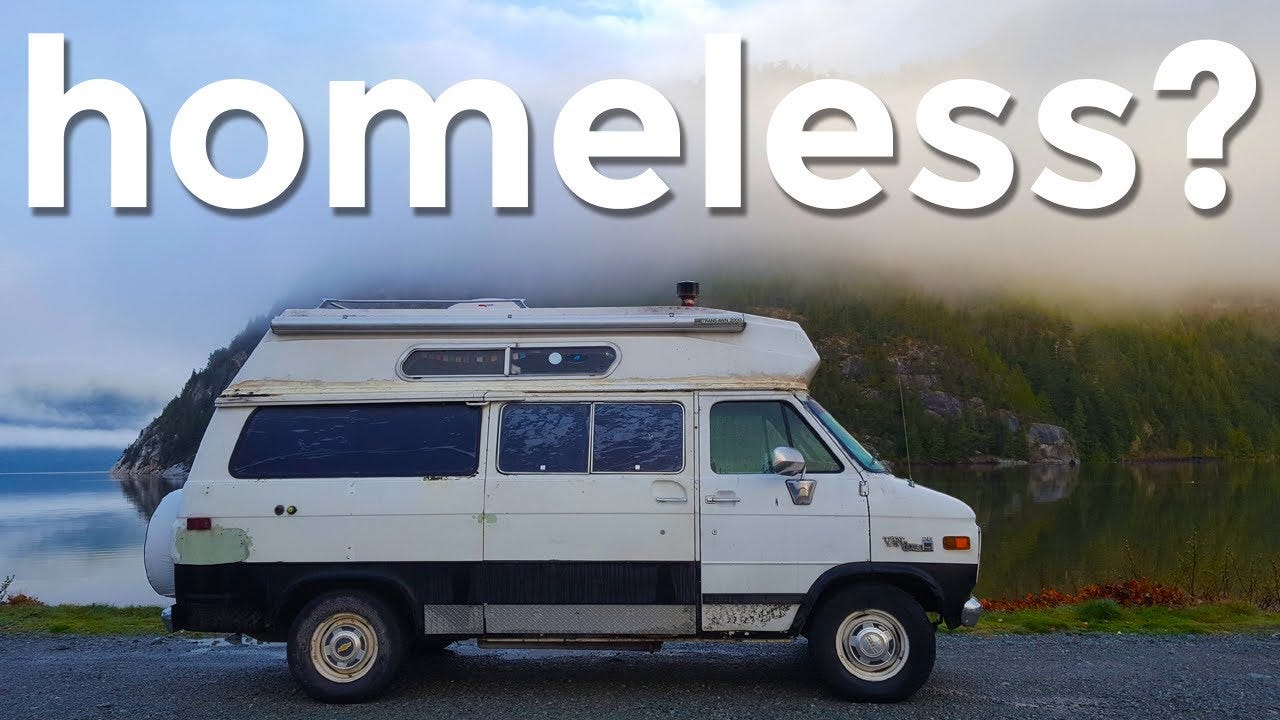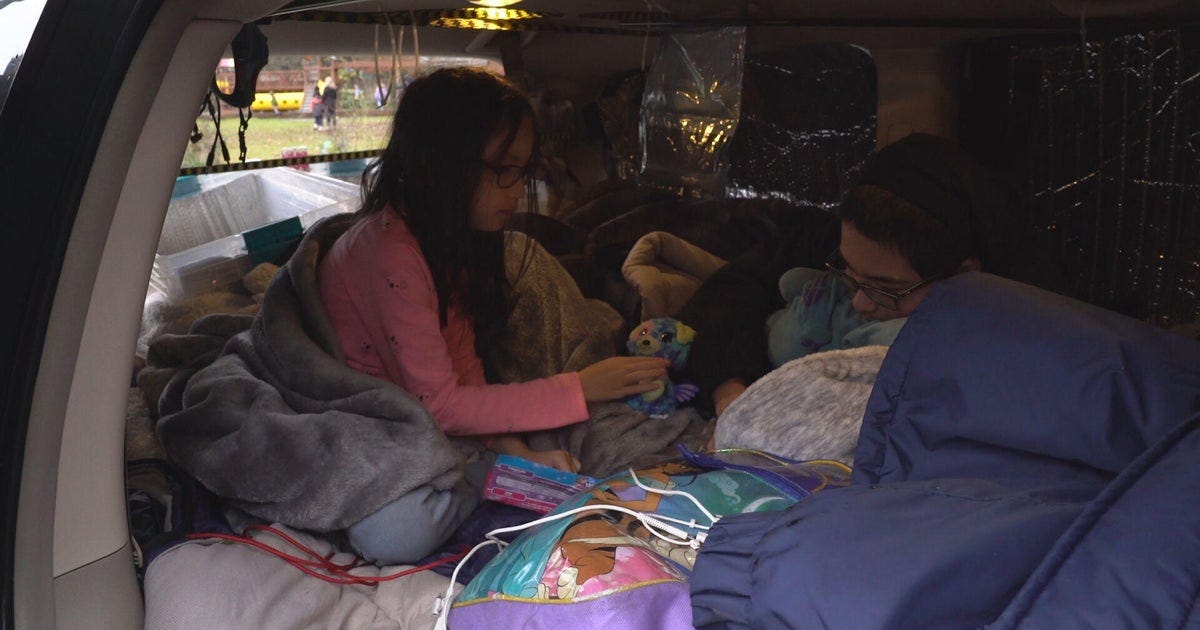Many unhoused persons have taken to residing in a bus or van as a desperate way to avoid the elements. Finding a good and secure place to park the vehicle is a problem. Many municipalities fight those who are parking vehicles to live in. And “sweeping” to get rid of the vehicles is becoming more common in the news. Towing away one’s temporary home can be devastating to the homeless person indeed.
Sweeping is not just about removing tents or lean-to buildings. Sweeping is also towing away those vehicles—making it harder for people to escape homelessness. Why? Often important documents and identification cards are lost. Driver’s licenses, coupons, birth certificates, and other papers get lost. As do papers on medications needed, prescriptions, court dates, and school information on the children.
Sweeping does not save or assist anyone but on the contrary, can also kill people. It deprives homeless people of their few prized possessions, property, and well -being. It is also an unconstitutional, illegal, and destructive measure against the poorest sections of the community. In sum, it's institutional violence.
I myself have friends that died as a result of sweeping. A good friend of mine said, “My biggest fear is that I'm going to run out of gas and then they're gonna come tow away my home.” And that's literary what happened! They had called SWAT on the 80-year-old man so they just left their home and he died," stated Chanel Horner, another friend.
Chantal’s bus got towed away also! So she filed a lawsuit against the local authorities who towed the bus way. Horner is suing the local authorities over what she deems is enforcing an unconstitutional and ill thought-out ordinance. Ms. Horner, in launching her lawsuit adds that "I want to see it {the lawsuit} make a difference to everyone else that's getting towed out here.” She goes on to say, “So many people have lost their homes lately and I've literally seen people die a few weeks later after they got towed because they started doing fentanyl. The authorities took everything from people… and they would never have done that stuff if it hadn’t been for the fact that they had nothing left."
Horner claims that the constant threat of Unitary care teams dismantling and removing one's shelter has created an all pervasive tense atmosphere of fear and hypervigilance. A person living in a van or bus who returns from work can find instead an empty void. The psychological impact is devastating. Residents are always on the lookout and anxious about the safety of their property. But all this towing costs the local authority much money as well as depriving people of their homes. Horner is therefore suing the city requesting an injunction prohibiting the impounding of vehicles. She argues that this policy of forcible displacement represents “institutional violence” against the homeless.
Such lawsuits against the local governments such as the Burien City Council (Washington) as well as many other councils comes at a time when homelessness is not only soaring, but the use of draconian raids on homeless encampments have escalated dramatically over the past four years. The calls to crack down on the homeless on the basis they represent a threat in terms of hygiene, drug abuse, and safety have also risen--fueling the rise of right-populist mayors being able to get away with issuing rules and laws such as the following. The mayor of Burien, Washington, issued ordinance 827 on 2nd October 2023 to ban the homeless from staying on 'public property' in Burien and King County.
In addition, in Seattle under a populist mayor Bruce Harrell the number of sweeps was unprecedented and greatly soared . Following the pandemic, the number of sweeps on the homeless tripled in 2022. {See brilliant article 'Sweeps Tripled in 2023', by Guy Oron, June 5th 2024, in Real Change, an alternative news organization}. In one month alone in June Seattle broke the record of organizing more than 2800 sweeps of homeless people. All those raids or sweeps are often conducted without any notice or warning. Whenever Mayor Bruce Harrell is questioned about this, he makes the highly questionable claim his policies are helping the homeless. He spins out a litany of creating 5161 units of affordable houses , creating affordable housing, detox beds, and emergency teams.
Any homeless advocate hearing all this could be forgiven for believing he was listening to a version of Alice in Wonderland. For instance, there is a claim that the local authorities provide sheltered accommodation for all the homeless driven out of the city. In fact, practically no such all-encompassing accommodation is available. Those shelters only cater for homeless women and children. The vast majority of the homeless don't qualify for this aid.
It might sound that Horner's claim that 'obstruction sweeping' {i.e., the claim that encampments or vehicles are blocking or obstructing the public way in parks and on roads kills the homeless} is too passionate and theatrical. But Horner's bitter personal experience is vindicated by proper medical research. An April 2023 study published by the Journal of the American Medical Association estimated that sweeps were associated with a 19% increase in deaths and 2.5 more overdoses among unsheltered homeless who inject drugs.
Judgmental people like to make the unfounded claim that the people are homeless simply because of taking drugs. These people do not understand the complexity of how homelessness starts—or the reality that drug abuse and other maladaptive behaviors may occur before—during—or after becoming homeless. These people practically never ask whether their own favoured crackdown on the homeless can drive a person into taking drugs! Alcoholism and drug addiction are aptly described as 'the despair diseases.' Few people are aware of the traumatic roots of so much drug addiction which might be traced back to early childhood abuse or life setbacks.
Doctor Sara Rankin of Seattle University who is a specialist in housing states that the reasons for rising homelessness is not drugs or alcohol but instead lie in the housing market. The reasons seem to lie mainly with rising housing costs and a lack of affordable housing.
A 36-year-old homeless activist who lost his job in the pandemic and later his home, Joe Molley, has decided to stand for the election of Mayor for Seattle this November. He accuses the local authorities of prioritising punishment of the homeless over assisting them. Molley is campaigning for local people to have a decent living wage , more access to medical care, and also affordable housing. He is also fed up with the local authority's punitive approach to the homeless. Molley explains that the problem of homelessness "is a humanitarian crisis at this point. The situation is heartbreaking but it is also embarrassing." That a homeless person is prepared to challenge the mayor to an election is an indication about how much deep dissatisfaction exists around cities’ and villages’ solutions to this issue.
A lawsuit by the Coalition on Homelessness charges the city of Burien with violating the Washington Constitution by adopting vague and almost incomprehensible ordinance 827 that criminalizes the status of the homeless, inflicts cruel and unusual punishment, and deprives a person of the right to due process. The city's measures disrupt the lives of homeless individuals and deny them the right to privacy and freedom of movement. But the ordinance violates due process by granting law enforcement excessive discretion without clear guidelines or a clearly defined permitting process.
It is hardly an unreasonable question to pose: Who is really violating the law? The homeless or the law enforcement bodies who lack basic knowledge of the US Constitution?
Chanel Horner and other activists are absolutely right. The unhoused persons out there truly need 100 % moral and social support as well as other available resources to win their lawsuits. We have to use all the available resources to support and sustain an on-going campaign.




